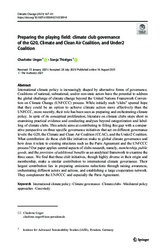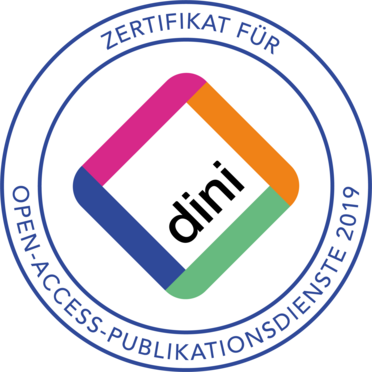Preparing the playing field: climate club governance of the G20, Climate and Clean Air Coalition, and Under2 Coalition
DOI: https://doi.org/10.1007/s10584-021-03189-8
Persistent URL: http://resolver.sub.uni-goettingen.de/purl?gldocs-11858/11648
Persistent URL: http://resolver.sub.uni-goettingen.de/purl?gldocs-11858/11648
Unger, Charlotte; Thielges, Sonja, 2021: Preparing the playing field: climate club governance of the G20, Climate and Clean Air Coalition, and Under2 Coalition. In: Climatic Change, Band 167, 3-4, DOI: 10.1007/s10584-021-03189-8.
 |
Dokument öffnen: |
International climate policy is increasingly shaped by alternative forms of governance. Coalitions of national, subnational, and/or non-state actors have the potential to address the global challenge of climate change beyond the United Nations Framework Convention on Climate Change (UNFCCC) process. While initially such “clubs” spurred hope that they could be an option to achieve climate action more effectively than the UNFCCC, more recently, their role has been seen as preparing and orchestrating climate policy. In spite of its conceptual proliferation, literature on climate clubs stops short in examining practical evidence and conducting analyses beyond categorization and labelling of climate clubs. This article aims at contributing to filling this gap with a comparative perspective on three specific governance initiatives that act on different governance levels: the G20, the Climate and Clean Air Coalition (CCAC), and the Under2 Coalition. What contribution do these club-like initiatives make to global climate governance and how does it relate to existing structures such as the Paris Agreement and the UNFCCC process? Our paper applies central aspects of clubs research, namely, membership, public goods, and the provision of additional benefits as an analytical framework to examine the three cases. We find that these club initiatives, though highly diverse in their origin and membership, make a similar contribution to international climate governance. Their largest contribution lies in preparing emissions reductions through raising awareness, orchestrating different actors and actions, and establishing a large cooperation network. They complement the UNFCCC and especially the Paris Agreement.


